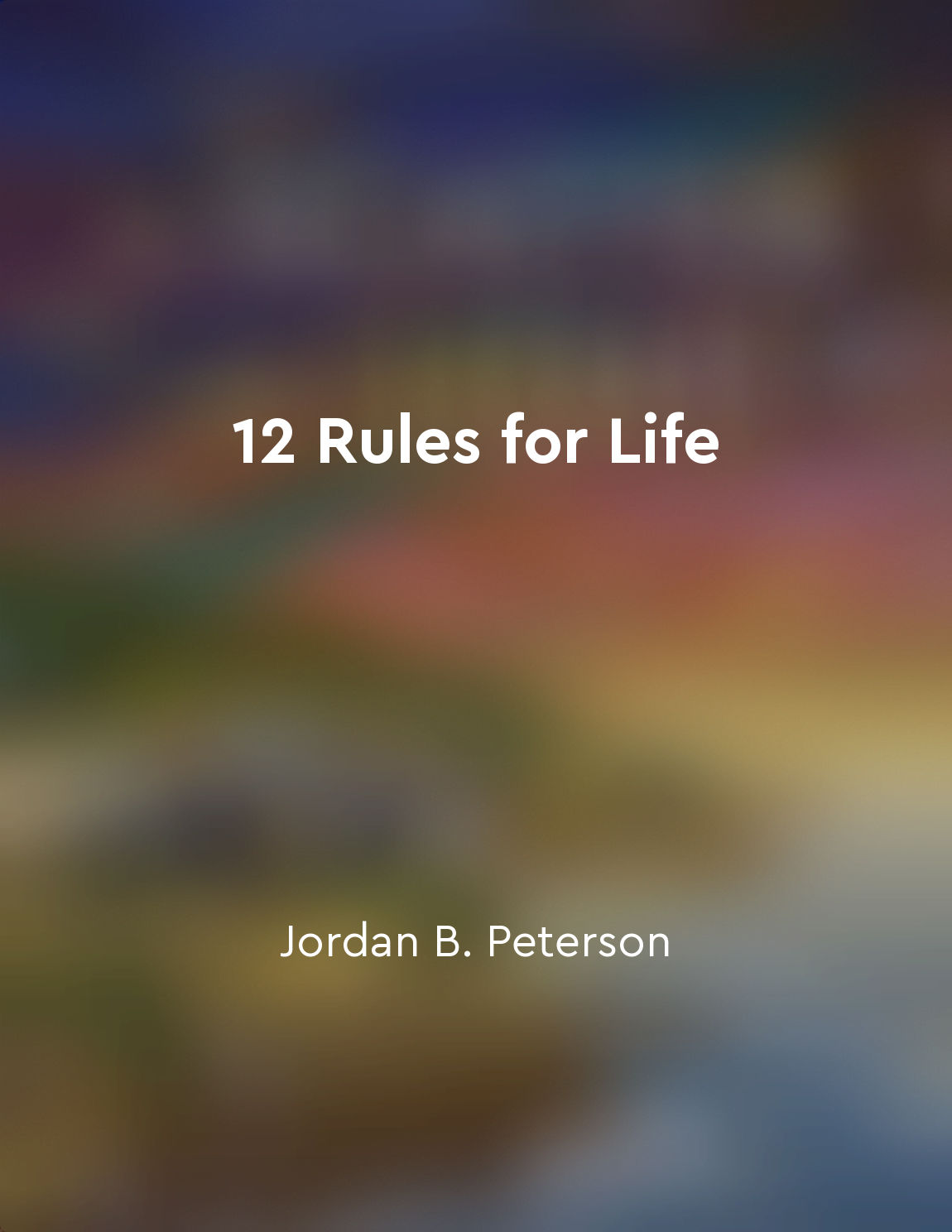Audio available in app
Treat yourself like someone you are responsible for helping from "summary" of 12 Rules for Life by Jordan B. Peterson,Ellis Goodman
People often care for others with meticulous attention, offering them support, compassion, and guidance. Yet, when it comes to self-care, many fall short, neglecting their own needs and well-being. This dissonance reveals a profound psychological truth: the way one treats oneself often reflects a lack of respect for one's own worth. Imagine a scenario where a friend is struggling. The instinct is to offer assistance, to ensure they have what they need to thrive. This same care must be directed inward. Self-neglect breeds resentment and despair, while self-compassion fosters resilience and growth. Recognizing one’s own humanity and fallibility is essential. If you were responsible for another, you would advocate for their health, happiness, and fulfillment—why not apply that same logic to oneself? This concept encourages an examination of the inner dialogue. Too often, it is harsh and punitive. Instead, it should be nurturing and supportive. When faced with a decision, consider what advice would be given to a loved one in the same situation. Would you urge them to take care of their physical health, to pursue their interests, or to seek help when needed?- It becomes possible to cultivate a more compassionate internal environment. This shift not only enhances personal well-being but also enriches the capacity to contribute positively to the lives of others. The ripple effect of self-respect and compassion ultimately benefits the wider community, creating a cycle of support and understanding.


